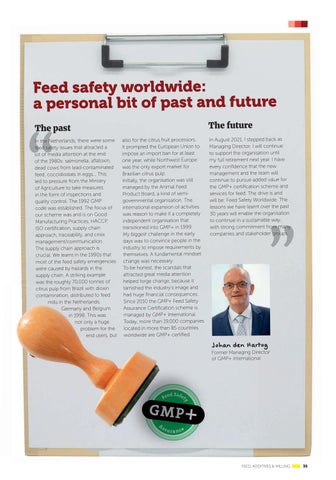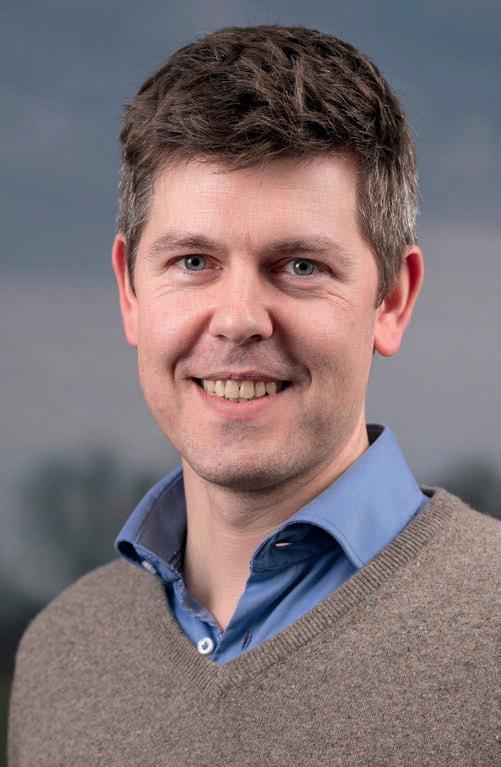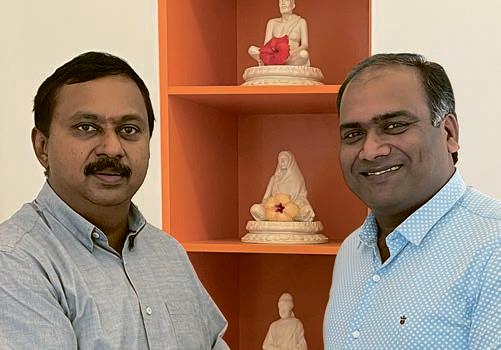Feed safety worldwide: a personal bit of past and future The past
“
In the Netherlands, there were some feed safety issues that attracted a lot of media attention at the end of the 1980s: salmonella, aflatoxin, dead cows from lead-contaminated feed, coccidiostats in eggs... This led to pressure from the Ministry of Agriculture to take measures in the form of inspections and quality control. The 1992 GMP code was established. The focus of our scheme was and is on Good Manufacturing Practices, HACCP, ISO certification, supply chain approach, traceability, and crisis management/communication. The supply chain approach is crucial. We learnt in the 1990s that most of the feed safety emergencies were caused by hazards in the supply chain. A striking example was the roughly 70,000 tonnes of citrus pulp from Brazil with dioxin contamination, distributed to feed mills in the Netherlands, Germany and Belgium in 1998. This was not only a huge problem for the end users, but
The future In August 2021, I stepped back as also for the citrus fruit processors. Managing Director. I will continue It prompted the European Union to to support the organisation until impose an import ban for at least my full retirement next year. I have one year, while Northwest Europe every confidence that the new was the only export market for management and the team will Brazilian citrus pulp. continue to pursue added value for Initially, the organisation was still the GMP+ certification scheme and managed by the Animal Feed services for feed. The drive is and Product Board, a kind of semiwill be: Feed Safety Worldwide. The governmental organisation. The lessons we have learnt over the past international expansion of activities 30 years will enable the organisation was reason to make it a completely to continue in a sustainable way, independent organisation that with strong commitment from many transitioned into GMP+ in 1999. companies and stakeholder groups. My biggest challenge in the early days was to convince people in the industry to impose requirements by themselves. A fundamental mindset change was necessary. To be honest, the scandals that attracted great media attention helped forge change, because it tarnished the industry’s image and had huge financial consequences. Since 2010 the GMP+ Feed Safety Assurance Certification scheme is managed by GMP+ International. Today, more than 19,000 companies located in more than 85 countries worldwide are GMP+ certified.
”
Johan den Hartog
Former Managing Director of GMP+ International
FEED, ADDITIVES & MILLING
PoultryNL_2022_magazine.indd 35
35
08-05-2022 13:41









































